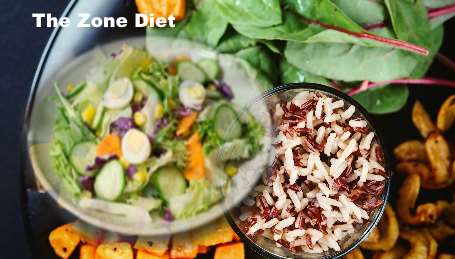NYC Blog
Weight Loss
What is the Keto Diet or Ketogenic Diet?

What is the Keto Diet? What to Eat, Tips, Recipes, FAQ
The ketogenic diet is a high-fat, adequate-protein, low-carbohydrate diet that in medicine is used mainly to treat hard-to-control epilepsy in children. The diet forces the body to burn fats rather than carbohydrates.
The keto diet has its roots in the decades-old therapeutic ketogenic diet. Clinically, the ketogenic diet is used in neurologic medicine, most notably to reduce hard-to-control seizures in children. Studies also suggest possible benefits in other brain conditions such as Parkinson’s and Alzheimer’s diseases.
How it works
With keto, your body enters a state of ketosis. It’s breaking down stored body fat and dietary fat into substances called ketones for energy – instead of using carbs for energy.What can I eat unlimited on keto diet?
Here are some healthy foods to eat on a ketogenic diet.Seafood. Fish and shellfish are very keto-friendly foods.
Low-carb vegetables.
Cheese.
Avocados.
Meat and poultry.
Eggs.
Coconut oil.
Plain Greek yogurt and cottage cheese.
What can I not eat on keto diet?
FOODS TO AVOID ON A KETO DIETOatmeal.
Wheat Grains.
Whole Wheat Flour.
Rice.
Quinoa.
Rye.
Barley.
Corn.
Pasta
Certain alcoholic beverages: Beer and sugary mixed drinks.
What is a typical meal on a keto diet?
A healthy ketogenic diet should consist of about 75% fat, 10-30% protein and no more than 5% or 20 to 50 grams of carbs per day. Focus on high-fat, low-carb foods like eggs, meats, dairy and low-carb vegetables, as well as sugar-free beverages. Be sure to restrict highly processed items and unhealthy fats.Keto-friendly beverage choices
Water: Water is the best choice for hydration and should be consumed throughout the day.Sparkling water: Sparkling water can make an excellent soda replacement.
Unsweetened coffee: Try heavy cream to add flavor to your cup of joe.
Unsweetened green tea: Green tea is delicious and provides many health benefits.
U.S. News Best Diet Rankings
Keto Diet ranked #37 in Best Diets Overall. 39 diets were evaluated with input from a panel of health experts.Diet Review, Intermittent Fasting FOR Weight Loss

Intermittent fasting Diet, Benefits, how-to, and tips
Wegight Loss Management
Your body stages intermittent fasting between fasting and feeding hours.
Rather than controlling the food you consume; it regulates where you eat it. It can also be seen as more of a feeding habit than a diet.
The most common methods of practising intermittent fasting are:
• The 16/8 method: miss breakfast and limit your normal meal to 8 hours, followed by fasting for the remaining 16 hours of the day. The food-stop-eat method: Requires 24-hour fasts once or twice a week on non-consecutive days.
• Diet 5:2: On two non-consecutive days of the week, the consumption is reduced to 500–600 calories. You should not limit the intake for the remaining five days.
How it works
Intermittent fasting is widely used for weight loss as it contributes to a relatively simple calorie restriction.
It will help you consume less calories overall—as long as you don't overcompensate by eating a lot more during your diet.
Weight loss
Intermittent fasting is usually very effective due to weight loss. It has been shown to cause 3–8% weight loss over a span of 3–24 weeks, which is a lot relative to other weight loss diets.
In addition to having less muscle loss than the normal calorie restriction, the metabolic rate may rise by 3.6–14 per cent in the short term.
Other benefits
intermittent fasting can reduce inflammatory markers, cholesterol levels, blood triglyceride levels and blood sugar levels.
In addition, intermittent fasting has been related to elevated levels of human growth hormone (HGH), enhanced insulin sensitivity, improved cellular recovery, and altered gene expression.
Animal experiments also show that it can help new brain cells mature, extend their lifetime, and protect against Alzheimer's disease and cancer.
The downside
While intermittent fasting is safe for well-nourished and stable people, it doesn't suit everyone.
Any reports note that this is not as helpful for women as it is for men.
In addition, certain people should stop fasting, particularly some that are vulnerable to decreases in blood sugar levels, pregnant mothers, breastfeeding moms, teens, infants, and people that are undernourished, underweight, or lacking in nutrients.
SUMMARY
Intermittent fasting helps the body to cycle between fasting and feeding. It is extremely good for weight loss and has been related to a variety of health benefits.Is a Low-Fat Diet Healthy?, Weight Loss Plan Review

The ultra-low fat diet is the best way to lose weight
Wegight Loss Management
Ultra-low-fat diet limits the fat intake to less than 10% of calories a day. Generally, a low-fat diet contains approximately 30% of the calories as fat. Studies have found that this diet is unsuccessful in the long run for weight loss.
Proponents of the ultra-low-fat diet contend that conventional low-fat diets are not low enough in fat and that fat consumption needs to maintain below 10% of total calories to achieve nutritional benefits and weight loss.
How it works
An ultra-low-fat diet includes 10% or less of fat calories. The diet is mainly plant based and has a small consumption of animal products.
It is thus usually very high in carbs—about 80 per cent of calories—and poor in protein—about 10 per cent of calories.
Weight loss
This diet proved to be a very good diet for weight loss in obese people. In one study, obese individuals lost on average 140 pounds (63 kg) of ultra-low fat diet.
Another 8-week diet analysis involving 7–14 percent fat showed an overall weight loss of 14.8 pounds (6.7 kg).
Other advantages
Studies show that ultra-low-fat diets can boost many risk factors for heart disease, including elevated blood pressure, high cholesterol, and inflammation markers.
Surprisingly, this high-carb, low-fat diet can also contribute to substantial changes in type 2 diabetes.
In comparison, multiple sclerosis—an autoimmune disorder that affects your brain, spinal cord, and optic nerves in your eyes—may slow down.
The downside
Weight restriction can cause long-term complications, as fat plays a variety of important roles in your body. These include helping to create cell membranes and hormones, as well as helping the body consume fat-soluble vitamins.
In comparison, ultra-low-fat diet reduces the consumption of certain nutritious ingredients, eliminates versatility and is highly difficult to sustain.
SUMMARY
Ultra-low-fat diet contains less than 10% of the fat calories. It can cause substantial weight loss and may also provide significant benefits for heart disease, type 2 diabetes and multiple sclerosis.The Zone Diet Plan Review and Foods

The Zone Diet: Pros, Cons, and How It Works
Wegight Loss Management
The Zone Diet is a low-glycemic diet that restricts carbohydrates to 35–45 per cent of calories per day and protein and fat to 30 per cent per day.
It advises eating only low glycaemic index carbs (GI).
The GI of a diet is an indicator of how much your blood glucose levels would rise after intake.
The Zone Diet was originally intended to minimise diet-induced inflammation, cause weight loss, and reduce your risk of chronic disease.
How this works
The Zone Diet advises combining each meal with 1/3 protein, 2/3 colourful fruits and vegetables, and a splash of fat, i.e. monounsaturated oil, such as olive oil, avocado or almonds.
It also restricts high GI carbohydrates, such as bananas, rice and potatoes.
Weight loss
research on low-GI diets is fairly contradictory. Although others claim the diet encourages weight loss and decreases appetite, some see very little weight loss relative to other diets.Other advantages
The biggest advantage of this diet is the lowering of risk factors for heart failure, such as decreased cholesterol and triglycerides.
One research suggests that Zone Diet may improve blood sugar control, reduce waist circumference, and reduce chronic inflammation in overweight or obese individuals with type 2 diabetes.
The downside
one of the few disadvantages of this diet is that it reduces the intake of certain good carbohydrate sources, such as bananas and potatoes.
SUMMARY
Studies on the weight loss effects are contradictory, but diet increases certain essential health metrics and reduces the risk of heart disease.Low-carb diet: Can it help you lose weight?

Low-Carb Diet Review - How It Works, Wegight Loss Management
Low-carb diets have been popular for decades—especially in terms of weight loss.
There are various types of low-carb diets, but all of them include reducing carb consumption to 20–150 grammes a day.
The primary objective of a diet is to push your body to use more fat for food instead of using carbohydrates as the key source of nutrition.
How this works
Low-carb diets prioritise limitless levels of protein and fat while severely restricting the carbohydrate consumption.
If the intake of carbohydrate is very low, fatty acids are transferred through your blood and delivered to the liver, where some of them transform into ketones.
Weight loss
Various studies have demonstrated that low-carb diets are extremely helpful for weight loss, especially in overweight and obese individuals.
They appear to be very effective in reducing the harmful belly fat that can be trapped around the organs.
People on extremely low-carb diets usually have a condition called ketosis. Many researchers note that ketogenic diets result in more than double the weight loss of a low-fat, calorie-restricted diet.
Additional benefits
Low-carb diets aim to decrease your appetite and make you feel less hungry, leading to an automatic reduction in calorie intake.
In comparison, low-carb diets can benefit many of the main disease risk factors, such as blood triglycerides, cholesterol levels, blood sugar levels, insulin levels, and blood pressure.
The downside to this:
Low-carb diets don't suit everybody. Some feel amazing about them, and others feel horrible.
Some people may experience a rise in "bad" LDL cholesterol.
In very rare cases, very low-carb diets can cause a severe disorder called non-diabetic ketoacidosis. This disease tends to be more common in lactating women and can be fatal if left untreated.
However, low-carb diets are healthy for most individuals.
SUMMARY
Low-carb diets significantly restrict carbohydrate consumption and force the body to use fat for food. They help to lose weight and are related to several other health benefits.Related Links...
Atkins Diet Plan Review - Foods, Benefits, and Risks
Vegan diet, benefits, foods, and tips Weight Loss Plan Review
The hCG (Human Chorionic Gonadotropin) for Weight Loss Plan Review
The Dukan Diet Review, Weight Loss Plan
The Paleo-diet Plan, Weight Loss Plan Review
Weight Loss & Diet Plans - Find healthy diet plans
Top 11 Weight Loss
Menu Items
Latest Post
/Latest News
/Latest News
/Latest News
/Latest News
/Best New York attractions




